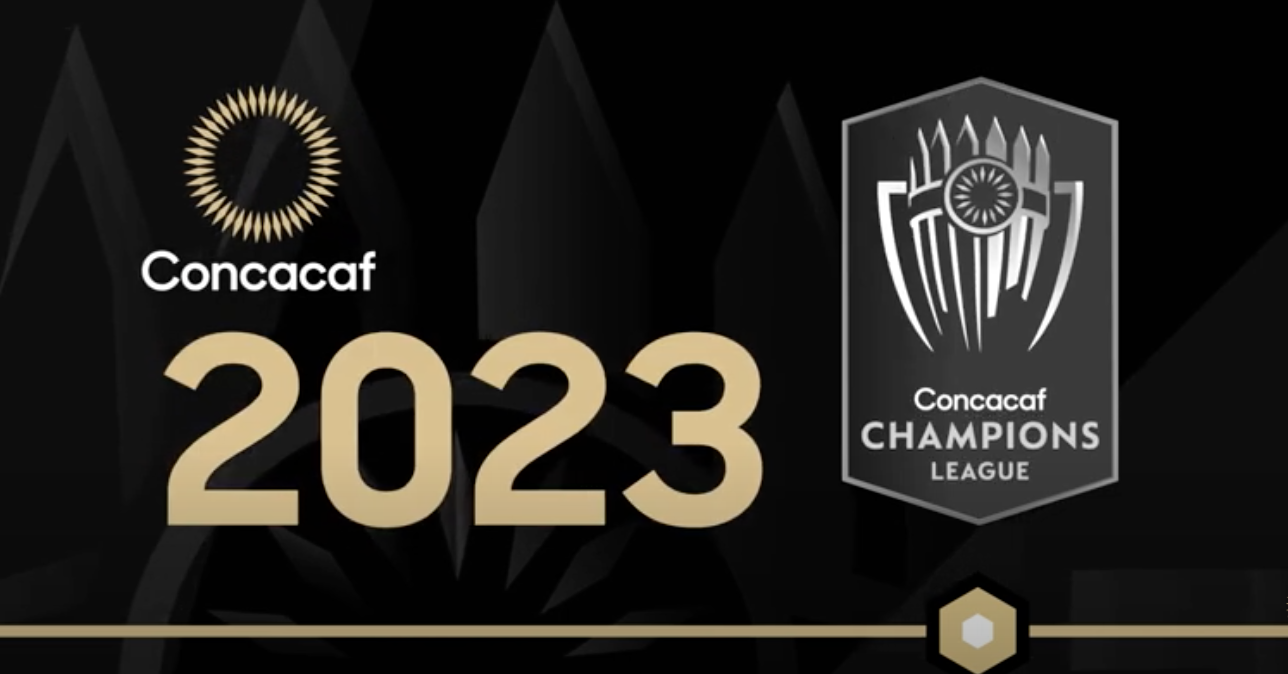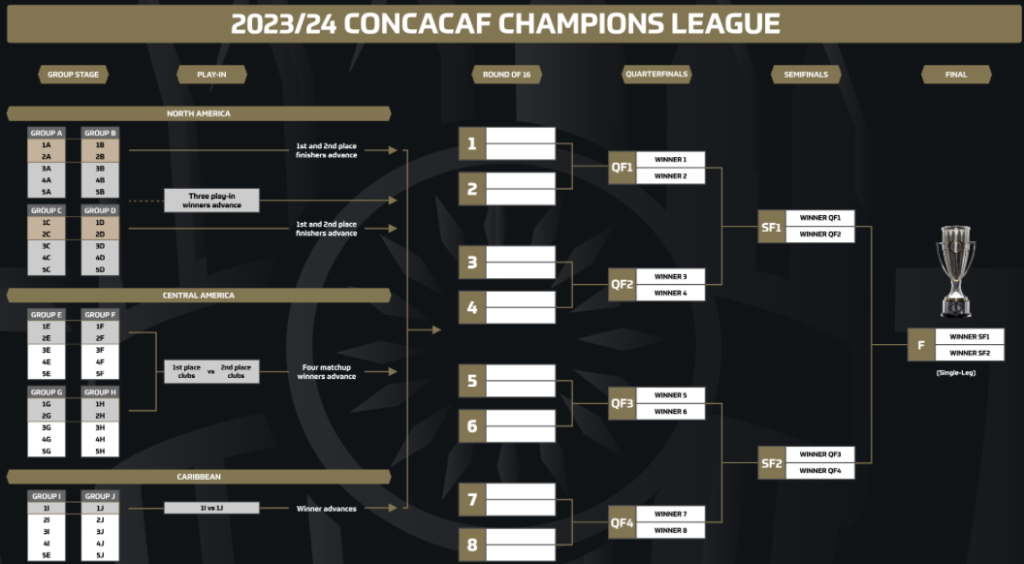By Paul Nicholson
February 4 – Concacaf is completely revamping its 16-team Champions League into a 50-team competition that will begin with a 2023/24 season and see its three regions open up group stages before going into the 16-team knock-out rounds.
The new structure will give not only increased opportunity for more clubs across the region to complete meaningfully in the Champions League, but will also give a big commercial boost to the competition via the creation of more big team match-ups from the big leagues, as well as regional derby clashes.
“This will fill a huge gap in our club competition structure,” said Concacaf president, Victor Montagliani. “What we inherited was not really Champions League but more of a champions cup tournament. Having a meaningful Champions League with groups and increased teams broadens our base across the region.”
The new format will see 20 clubs from North America (Canada, Mexico and the US) compete in four groups of five, 20 clubs from Central America in four groups of five, and 10 from the Caribbean in two groups of five.
Teams will play four group matches (two home and two away).
Qualification for the last 16 will still be dominated by the powerful professional leagues of LigaMX and the MLS (11 slots for North America) but for the first time cross border club competition will be given a visible and significant platform in the rest the region,
North America will see the four group winners and the four group second-place finishers qualify automatically, while a further three North American clubs will qualify via a play-in round that will follow the group stage.
In Central America the four group winners and the four group second-place finishers will qualify for a play-in, the four winners going through. In the Caribbean the two group winners will qualify for a play-in match.
Concacaf is also committing to the formation of a Central American cup and a Caribbean Cup as part of this new Concacaf club competitions structure, working closely with the CFU (Caribbean) and UNCAF (Central America) regional associations.
“The Caribbean and Cental American have never really linked their events through to Concacaf competition,” said Montagliani. “We are very excited by the prospect of new Central American and Caribbean Cup competitions as part of this new ecosystem. They will provide great matchups between rival clubs and will further drive development of the club game within the respective regions.”
For the Caribbean in particular it is a significant step towards the ambition of a professional regional league. “what this does is give a backbone in the Caribbean towards a professional league. That is a work in progress and it will take time to get right,” said Montagliani.
Currently the Caribbean has only four national professional leagues and really only one, in the Dominican Republic, resembles the club structures seen in other professional league worldwide.
“The new structure gives us a trunk from which branches can grow,” said Montagliani.
One professional league in the region that did eventually get it right was the Canadian league but Montagliani emphasises this didn’t happen overnight. But even after just one full season there has been a performance boost for the game in the country and for the national team.
“There are a lot of Canadian players in leagues around the world who are looking at their home league and realising that they could return home to earn similar money, get on to the radar of the national coach and play in a higher profile Champions League where they will be more visible.”
The current format of the Champions League will remain the same for the 2021, 2022 and 2023 editions with the winners qualifying for the Club World Cup.
The transition to the new format comes with a move outside the boundaries of Concacaf’s usual calendar year season. In 2023 with the group stage will begin in the Fall and the knockout stages in the Spring of 2014.
Contact the writer of this story at moc.l1751589300labto1751589300ofdlr1751589300owedi1751589300sni@n1751589300osloh1751589300cin.l1751589300uap1751589300


